Sadly the holidays for many of us have come and gone and we are all wondering where that time went….
Well, enough about that – it’s time to get your year planned and prepped so you can focus on your sales/growth with minimum stress and actually enjoy your year! Let’s take a look your Human Resources in 2020, and the sorts of things that may present themselves to you this year, so you can think about how you are going to handle them…the right way.
Mental Health in the Workplace
Mental health in the workplace is increasing. Sometimes it is obvious, sometimes the employee raises it with their manager, but sometimes, sadly, it goes unnoticed or is misinterpreted. This can be deemed as the person is “slacking off” or not focussed or not engaged with their work and or colleagues. Whilst mental health can be a result of a personal issue, depression or a pre-existing condition/trauma, it can also come about as a result of bullying in the workplace, unrealistic workloads, management styles and unsafe working conditions. All of which are the employers responsibility to resolve.
The Fair Work Act protects employees who are dealing with mental health issues from unlawful workplace discrimination and therefore it is very important as an employer that you handle mental health with the respect it deserves and ensure that you are treating your employee fairly and reasonably at all times.
If you feel that one of your employees is suffering from mental health issues here are some tips to help you both:
- Discuss it with the employee (if they are comfortable) in a private and safe environment. Don’t push the issue, be patient and listen.
- Be respectful about the situation, this is not the time for jokes.
- Try and ascertain as soon as possible if it is resultant from a work situation, but don’t ask personal or irrelevant questions just to be nosey.
- If the employee feels bullied or pressured by another employee, reassure them that you will talk to the other person and ensure that you do so.
- Ask the employee if they have a support person at home or someone else to talk to outside of office hours.
- Ask the employee if they would like to restructure their work commitments and hours of working, if this would help. However, be mindful that working may be what they actually need/want.
- Include the employee in all usual office and social activities if they wish, but if they prefer not engage, do not push them.
- Don’t discuss the employee’s situation with other staff members, nor speak ill of the employee behind their back.
- Consider offering your employees an EAP (Employee Assistance Program that manages psychological wellbeing).
- Work with the employee on first a wellness, then rehabilitation strategy.
- If the situation is escalating, ask the employee if they have a support person or next of kin you can contact. If they don’t contact HR Central and we can provide you with the appropriate service, and of course if it becomes a life-threatening situation, call 000.
Mental health support should be very much a part of your Human Resources 2020 plan as part of the overall employee well-being strategy that takes in to consideration identification and acknowledgement, support and rehabilitation.
Work Life Balance
Probably sounds like every employers nightmare, but if you have happy workers you have productive workers, and a good workplace culture. From reduced absenteeism to improved productivity and job satisfaction, there are significant benefits for employees and employers in providing flexibilities for work and family balance. As an employer you can offer and be open to employment arrangements that help employees manage family and lifestyle commitments while taking into account business needs.
The benefits of flexible working can be achieved in all workplaces, with the implementation of policies and individual agreements that are communicated effectively and agreed to by both employee and employer. There needs to be an element of trust once an agreement is in place that it is executed by both parties correctly. Some of the ways as an employer you can offer flexible working conditions is by:
- taking time off in lieu of overtime payments
- working additional hours to make-up for time taken off
- offering child care facilities, or information about where parents can access these facilities near their workplace
- offering part-time or flexi-hours
- encouraging staff to take annual leave
- job share arrangements
- casual clothes days
- working from home
- providing computers, logins or diverting the phone for working from home
- roster systems so that more than one employee can enjoy the benefit of working out of the office whilst still ensuring phones are answered, reception is attended to, etc.
Whilst not all of the above may be easy to incorporate into your business, being open minded and willing to discuss requests and options with your employees can help maintain good working relations.
It would be near on impossible for any employer not to have noticed at least one mention of underpayments in the news including the fines and penalties faced by business owners. Underpayments can be deliberate (inexcusable), but even when they are not deliberate you can still be fined and mentioned in the press (a blow to both your finances and your reputation). Fair Work takes underpayments very seriously and protects the identity of individuals if they report on their employer or someone they know who is involved. Steps you can take that can drastically reduce your chances of underpaying are:
- Create detailed Position Descriptions.
- Have up to date Contracts in place for each employee.
- Ensure you are paying the correct award rates.
- Ensure you are correctly classifying your workers. Fair Work are always on the look-out out for employers creating sham contracts. Sham contracting occurs when an employer treats an employee as an independent contractor when they’re not. Some employers actually create sham contracting agreements to avoid paying employee entitlements, whilst some do due to lack of information. Either way it is viewed as an illegal act.
- Confirm rates of pay for different hours worked (ordinary hours, overtime, Weekends, public holidays, etc).
- Track hours worked correctly by providing payslips and keeping records. Payslips must be issued within 24 hours of an employee being paid. Record keeping includes timesheets, payslips and pay summaries, tax file declarations, and superannuation payments. Remember that time and wages records must be kept for seven years.
- Stay informed of changes to awards/rates. HR Central send changes regarding legislation, including awards and rates for every state via the NEWS function on our app.
- Monitor duties and other changes and ensure you have it all in writing!
HR Technology/HRIS
Just like managing your finances through accounting tech, it is now the way to manage your Human Resources via HR tech. Whilst it sounds impossible and yes, there are certain aspects of the employment cycle that still need people to meet and manage situations, HR tech is a great way to manage often cumbersome but required HR tasks. For example,
- Compliance in a business is far easier to manage if you have online policies that employees can read and sign off on.
- Leave workflows that take out the paperwork and are done electronically then linked to payroll systems cuts down manpower hours, ensures synchronisation of data, and is just faster.
- HR templates that can be re-used and re-created for every position ensures consistency in both content and process and as they are provided by HR professionals, give business owners a sense of assurance and support.
- The ability to login to a system and view all employee records in one place, run reporting on departments around compliance, attendance, qualifications and performance makes a business owner independent in their HR capabilities and cuts down on internal HR resource costs.
HR is changing. Workplaces look nothing like they did 50 years ago and with the introduction of technology and new generations with new ways of thinking and operating, business operation also has to change. 2020 will see more and more business owners managing more individuals and even teams remotely, the 9 – 5 working hour rule diminishing, acknowledgement that employees are people with lives outside of work which need to be respected, and technology rapidly replacing paper and filing cabinets. In addition, just like Sir and Mr or Mrs have nearly disappeared out of our vocabulary, business hierarchy is changing. Employees are more outspoken, younger, faster! wanting to excel up the ranks more quickly and believe in equality more than ever before. But this is not to be alarming! With the right understanding and attitude, these world-wide workplace changes can bring great success to a business.
And on a final note, if you do one thing this year remember to communicate! communicate! communicate! Communicating frequently and openly with your team ensures that “issues” are resolved quickly and before they may escalate. It also ensures that people are informed (both employer and employee) and so this creates better understanding and opens a gateway to working better together. So keep the office door open, and bring on an open mind to your Human Resources in 2020… you got this in the bag, boss!

